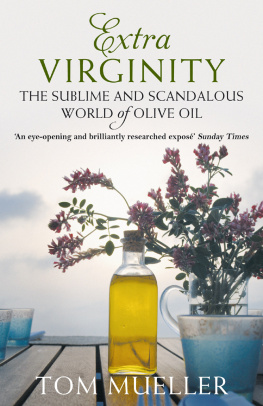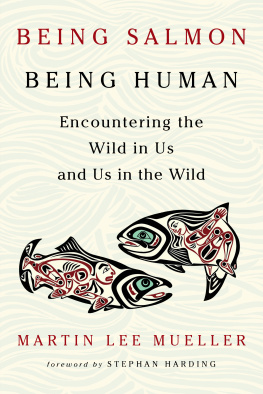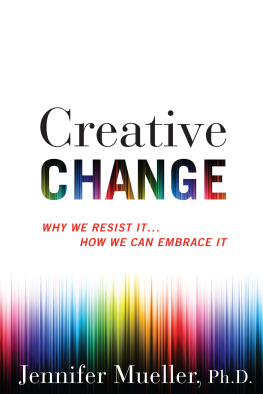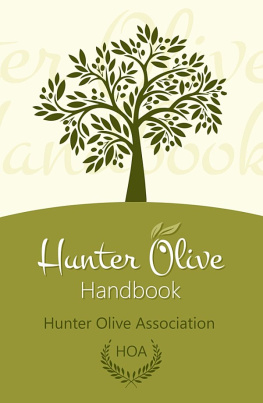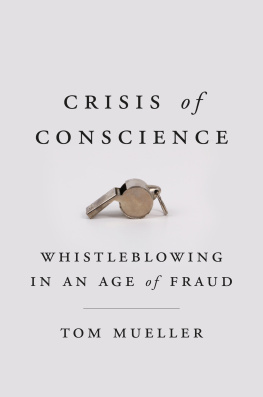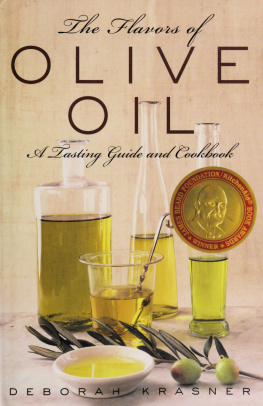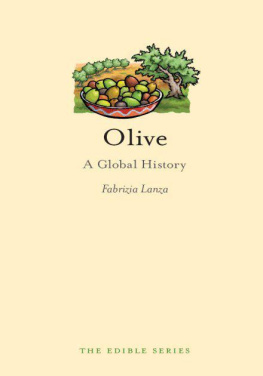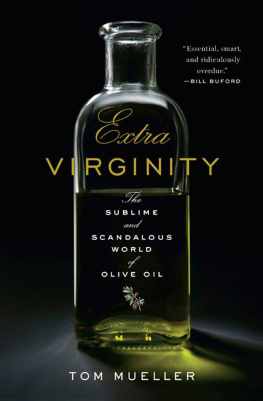Mueller - Extra virginity the sublime and scandalous world of olive oil
Here you can read online Mueller - Extra virginity the sublime and scandalous world of olive oil full text of the book (entire story) in english for free. Download pdf and epub, get meaning, cover and reviews about this ebook. City: London, year: 2013, publisher: Atlantic Books Ltd, genre: Home and family. Description of the work, (preface) as well as reviews are available. Best literature library LitArk.com created for fans of good reading and offers a wide selection of genres:
Romance novel
Science fiction
Adventure
Detective
Science
History
Home and family
Prose
Art
Politics
Computer
Non-fiction
Religion
Business
Children
Humor
Choose a favorite category and find really read worthwhile books. Enjoy immersion in the world of imagination, feel the emotions of the characters or learn something new for yourself, make an fascinating discovery.
- Book:Extra virginity the sublime and scandalous world of olive oil
- Author:
- Publisher:Atlantic Books Ltd
- Genre:
- Year:2013
- City:London
- Rating:5 / 5
- Favourites:Add to favourites
- Your mark:
- 100
- 1
- 2
- 3
- 4
- 5
Extra virginity the sublime and scandalous world of olive oil: summary, description and annotation
We offer to read an annotation, description, summary or preface (depends on what the author of the book "Extra virginity the sublime and scandalous world of olive oil" wrote himself). If you haven't found the necessary information about the book — write in the comments, we will try to find it.
Mueller: author's other books
Who wrote Extra virginity the sublime and scandalous world of olive oil? Find out the surname, the name of the author of the book and a list of all author's works by series.
Extra virginity the sublime and scandalous world of olive oil — read online for free the complete book (whole text) full work
Below is the text of the book, divided by pages. System saving the place of the last page read, allows you to conveniently read the book "Extra virginity the sublime and scandalous world of olive oil" online for free, without having to search again every time where you left off. Put a bookmark, and you can go to the page where you finished reading at any time.
Font size:
Interval:
Bookmark:

EXTRA
VIRGINITY

Tom Mueller lives in Liguria, Italy, with his wife and three children. Educated at Oxford and Harvard, he is a frequent contributor to the New Yorker, National Geographic Magazine, New York Times Magazine and the Atlantic Monthly.

First published in the United States of America in 2012 by W. W. Norton & Company Inc, New York.
First published in Great Britain in 2012 by Atlantic Books, an imprint of Atlantic Books Ltd.
This paperback edition published in Great Britain in 2013 by Atlantic Books.
Copyright Tom Mueller, 2012
The moral right of Tom Mueller to be identified as the author of this work has been asserted by him in accordance with the Copyright, Designs and Patents Act of 1988.
All rights reserved. No part of this publication may be reproduced, stored in a retrieval system or transmitted in any form or by any means, electronic, mechanical, photocopying, recording or otherwise, without the prior permission of both the copyright owner and the above publisher of this book.
Grasse: The Olive Trees from Ceremony and Other Poems copyright 1948 and renewed 1976 by Richard Wilbur, reprinted by permission of Houghton Mifflin Harcourt Publishing Company. The Peculiar Taste of Wild Olives by William Oxley was first published in In the Drift of Words (Rockingham Press, 1992). Ritsos, Yannis; Yannis Ritsos, Repetitions, Testimonies, Parentheses. 1991 Princeton University Press. Reprinted by permission of Princeton University Press.
Every effort has been made to trace or contact all copyright holders. The publishers will be pleased to make good any omissions or rectify any mistakes brought to their attention at the earliest opportunity.
10 9 8 7 6 5 4 3 2 1
A CIP catalogue record for this book is available from the British Library.
Paperback ISBN: 978 1 84887 006 2
eISBN: 978 1 78239 542 3
Printed in Great Britain
Atlantic Books,
An imprint of Atlantic Books Ltd,
Ormond House,
2627 Boswell Street,
London WC1N 3JZ
www.atlantic-books.co.uk
For Gino and Rosetta Olivieri

When a native of the Mediterranean had to leave the shores of the sea, he was uneasy and homesick; like the soldiers of Alexander the Great when he left Syria and advanced towards the Euphrates; or the sixteenth-century Spaniards in the Low Countries, miserable among the fogs of the North. For Alonzo Vzquez and the Spaniards of his time (and probably of all time) Flanders was the land where there grows neither thyme, nor lavender, figs, olives, melons, or almonds; where dishes are prepared, strange to relate, with butter from cows instead of oil.
Fernand Braudel, The Mediterranean and the Mediterranean World in the Age of Philip II

Preface

A few decades ago, to obtain one of their birthrights, Mediterraneans living in Britain had to troop to a pharmacy, where in an atmosphere redolent of rubbing alcohol, camphor and cough syrup, they would buy small brown bottles bearing the seal of the British Pharmacopoeia. These bottles contained olive oil, which to most self-respecting Britons was medicine, not part of a meal.
The Romans decamped from these shores 1600 years ago, taking their beloved olive oil and wine and leaving Britannia awash in barbarian butter, lard and beer. The resulting culinary-cultural divide between the Roman-dominated south of Europe and the barbarian northlands persisted to the present day. Southern Europeans, who at table continued to do much as the Romans had done, cherished olive oil and shunned butter as unhealthy, even unnatural. Members of the Gonzaga family, Renaissance lords of Mantua, brought ample supplies of good oil when they traveled to England, as did the Cardinal of Aragon on his voyage through the Low Countries in 1517: Due to the butter and dairy produce that is so widely used in Flanders and Germany, the cardinal observed warily, these countries are overrun with lepers. Most northern Europeans, for their part, prized olive oil for its medicinal properties and sacred symbolismolive oil was, after all, the main ingredient of Christian holy oilsbut disliked its bitterness and pungency, so unlike the sweet animal fats of their native comfort foods. Hildegard of Bingen, an abbess, mystic and poet-philosopher born on the Rhine, spoke for many when she stated that olive oil was fine physic but foul provender, which causes nausea when eaten, and ruins other foods when cooked together with them.
No wonder the saintly Hildegard took such a dim view of oil. From Roman times through to the late twentieth century, nearly all olive oil that arrived in Britain wasnt something youd want near your nose, much less in your mouth. Thomas Platter, a Swiss traveler of the sixteenth century, said that only low quality, second-pressed olive oil reached northern Europeand an expression current in England in his time, as brown as oil, suggests he was right. In many cases, imported olive oil wasnt just poor quality, but counterfeit. British consuls in Livorno reported that local oil merchants frequently topped up olive oil containers with cottonseed oil, and industrialists in the cloth trade complained that olive oil imported as a fabric softener was being adulterated with rapeseed oil, causing worm infestation in their wares. As recently as last year FOSFA, the storied organization based in London that facilitates international trade in oils and fats by writing contracts between buyers and sellers worldwide, wrote no contracts in olive oil because, it was rumored, the olive oil trade was too slippery.
IN THE LAST THIRTY years, however, the UK has started to discover olive oil. Though still sold at Boots in little brown bottles approved by the British Pharmacopoeia, olive oil is now a staple in many British households, and is widely available in supermarkets (Waitrose has the standout selection of estate oils, though Morrisons own-label oils can be good, too). As Italian, Greek and other olive oil-based cuisines have grown in popularity in the UK, and the Mediterranean diet has gained credence for its healthfulness, olive oil consumption has skyrocketed, increasing nearly eight-fold in the last two decades. There is an olive grove on the Isle of Oxney in Kent which, weather permitting, will yield its first oil next year, and in 2011, FOSFA finally began working in olive oil. The country boasts skilled olive oil sommeliers like Judy Ridgway, expert oil importers and consultants such as Charles Carey, oil aficionados and advocates like Michael North, even oil expats like Johnny Madge, whose olive oil bar near Rome and tours of the groves and mills of Sabina are becoming legendary. A few top chefs now speak of olive oils in the plural, understanding that there are 700 different types of olives, and thousands of different styles of oiltheyve begun to explore a culinary continent as complex in many ways as wine.
Font size:
Interval:
Bookmark:
Similar books «Extra virginity the sublime and scandalous world of olive oil»
Look at similar books to Extra virginity the sublime and scandalous world of olive oil. We have selected literature similar in name and meaning in the hope of providing readers with more options to find new, interesting, not yet read works.
Discussion, reviews of the book Extra virginity the sublime and scandalous world of olive oil and just readers' own opinions. Leave your comments, write what you think about the work, its meaning or the main characters. Specify what exactly you liked and what you didn't like, and why you think so.

